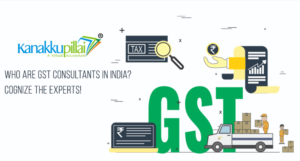![]()
GST Registration Process in Chennai
GST, a unified tax system, aimed to streamline and simplify the taxation process. For businesses in Chennai, understanding the intricacies of the GST registration process is crucial for compliance and seamless operations. This comprehensive guide will deeply dive into GST registration in Chennai, decoding the steps involved and providing valuable insights for businesses.
The Goods and Services Tax (GST) has revolutionized India’s tax landscape, streamlining tax administration and fostering a unified tax structure. For businesses in Chennai, obtaining GST registration is an essential step towards compliance and accessing the benefits of the GST regime.
Determining Eligibility for GST Registration
Before registering, it’s crucial to determine whether your business falls under the GST registration threshold. If your turnover exceeds the specified limit (₹20 lakhs for general businesses and ₹10 lakhs for special category states like Tamil Nadu), you must register for GST.
Gathering the Necessary Documents
The GST registration process in Chennai necessitates a set of essential documents, including:
- PAN card of the business entity or proprietor
- The Aadhaar card of the business owner or authorized signatory
- Proof of business registration (Certificate of Incorporation, Partnership Deed, etc.)
- Address proof (Business place rental agreement or sale deed)
- Bank account details
- Cancelled cheque or bank passbook
- Digital signature of the applicant (optional)
Initiating the Online GST Registration Process
Navigating the Goods and Services Tax (GST) registration process online in Chennai is essential for businesses aiming to comply with tax regulations and operate seamlessly in the formal economy. Here’s a detailed step-by-step guide to help you through the online GST registration process:
Step 1: Determine Eligibility
Before initiating the registration process, ensure that your business meets the eligibility criteria. This includes crossing the specified turnover threshold or voluntarily opting for registration to avail of benefits like input tax credit.
Step 2: Collect Required Documents and Information
This includes:
- PAN card of the business
- Aadhaar card
- Proof of business registration or Incorporation certificate
- Address proof of the principal place of business
- Bank account details
- Digital signature (if applicable)
- Authorization form for the authorized signatory
Step 3: Access the GST Portal
Visit the official GST portal (https://www.gst.gov.in/) to begin the registration process. Create an account on the GST Common Portal (GSTN) by providing the required details.
Step 4: Login and Access the Dashboard
After creating an account, log in to the GST portal using the credentials you’ve set up. Once logged in, you’ll be directed to the dashboard.
Step 5: Initiate the New Registration Process
On the dashboard, find and click on the “New Registration” option. This will start the online GST registration process.
Step 6: Fill Part A of the Application (GST REG-01)
Provide basic details such as the legal name of the business, PAN, mobile number, and email address.
Receive an OTP on the registered mobile number and email for verification.
After successful verification, a Temporary Reference Number (TRN) is generated.
Step 7: Complete Part B of the Application (GST REG-02)
- Access the GST portal again and click on the “Register Now” option.
- Enter the TRN received earlier and complete Part B of the application.
- Upload the required documents, including business registration proof, address proof, and bank details.
Submit the application.
Step 8: Verification Process
The application undergoes a verification process by the GST authorities. This may involve scrutiny of submitted documents.
Step 9: Issuance of GST Registration Certificate (GST REG-06)
Upon successful verification, the GST authorities will issue the GST registration certificate, also known as GSTIN (Goods and Services Tax Identification Number). This certificate is a legal acknowledgement of your business’s registration under GST.
Step 10: Post-Registration Compliance
Display the GSTIN prominently at your business premises.
Update the GST portal in case of any changes to business details.
Benefits of GST Registration Process in Chennai
Obtaining GST registration in Chennai offers a multitude of benefits for businesses, streamlining operations, enhancing financial management, and opening doors to new opportunities. Let’s delve into the key advantages of GST registration:
- Simplified Tax Structure: GST replaces a plethora of indirect taxes, eliminating the cascading effect of taxes and bringing transparency to the taxation process. This simplifies tax compliance, reduces the burden of multiple registrations, and facilitates easier tax planning.
- Input Tax Credit Mechanism: GST allows businesses to claim input tax credit on taxes paid on purchases, effectively reducing their overall tax liability. This mechanism encourages efficient supply chain management and incentivizes businesses to procure goods and services from registered suppliers.
- Enhanced Business Credibility: GST registration lends credibility to businesses, demonstrating their commitment to tax compliance and adherence to regulations. This fosters trust among customers, partners, and investors, potentially expanding business opportunities.
- Smooth Inter-State Transactions: GST eliminates tax barriers between states, facilitating seamless movement of goods and services across the country. This reduces transaction costs, expedites logistics, and promotes economic integration.
- Online Registration and Filing: The GST registration process is streamlined and conducted online, making it convenient and accessible for businesses. GST returns and payments can also be filed electronically, reducing paperwork and enhancing efficiency.
- Access to Government Schemes: GST registration allows businesses to avail of various government schemes and benefits, such as export incentives and tax exemptions. This can provide financial support and promote business growth.
- Improved Financial Management: GST registration encourages businesses to maintain proper accounting records and implement robust financial management practices. This leads to better financial control, informed decision-making, and improved cash flow.
- Competitive Advantage: GST registration levels the playing field for businesses, creating a fairer and more competitive business environment. This benefits businesses of all sizes, fostering innovation and growth.
GST Registration Certificate
Upon successful Aadhaar authentication, the GST registration certificate (GSTIN) will be generated and sent electronically to the registered email address.
Post-Registration Compliances
- File GST returns regularly (monthly/quarterly) as per the prescribed due dates.
- Maintain proper GST records and invoices.
- Make timely payments of GST liabilities.
Additional Considerations
Here are some additional considerations for GST registration in Chennai:
Multiple Branches:
If your business has multiple branches located in different states or UTs, you will need to obtain separate GST registrations for each branch. This is because GST is a state-specific tax, and each state has its own registration process and requirements.
Composition Scheme:
If your business falls under the ‘composition scheme,’ a simplified GST return filing system, you may opt for this scheme during registration. The composition scheme is available to businesses with a turnover of up to ₹1.5 crore. Under this scheme, businesses are required to pay a flat rate of GST on their turnover instead of calculating and paying GST on each individual transaction.
Tax Consultant Guidance:
It is advisable to consult a GST consultant for guidance on specific GST-related matters and to ensure compliance with all applicable regulations. Tax consultants can help you understand the GST registration process, prepare the necessary documents, and file GST returns accurately.
Additional Documents:
In some cases, you may be required to submit additional documents along with your GST registration application. These documents may include:
- Proof of business address (rental agreement or sale deed)
- Bank account details
- Cancelled cheque or bank passbook
- Digital signature of the applicant (optional)
Regular Compliance:
Once you have obtained GST registration, it is important to maintain regular compliance with all GST regulations. This includes filing GST returns on time, paying GST liabilities, and maintaining proper GST records.
Post-Registration Verifications:
The GST department may conduct post-registration verifications to ensure that you are complying with all GST regulations. These verifications may involve checking your GST records, invoices, and bank statements.
Penalties and Interest:
If you fail to comply with GST regulations, you may be liable to penalties and interest charges. It is, therefore, important to ensure that you are aware of all GST regulations and that you are complying with them on an ongoing basis.
GST registration costs in Chennai are typically around ₹2,500 – ₹5,000. This includes the cost of the application fee, the cost of preparing the necessary documents, and the cost of any professional services you may require.
GST registration costs
Here is a breakdown of the typical GST registration costs:
- Application fee: ₹1,000
- Document preparation fee: ₹500 – ₹1,000
- Professional services fee: ₹500 – ₹3,000 (if you use a consultant to help you with the registration process)
In addition to these costs, you may also need to pay for the following:
- Digital signature (optional): ₹1,200 – ₹2,000
- GST software: ₹1,000 – ₹5,000
- Training on GST software (optional): ₹500 – ₹1,000
Conclusion
In conclusion, obtaining GST registration in Chennai is a straightforward process that can be efficiently managed by following the outlined steps and adhering to the prescribed guidelines. By fulfilling the registration requirements and maintaining compliance, businesses can reap the benefits of the GST regime and contribute to a transparent and efficient tax system. By following this step-by-step guide, businesses in Chennai can navigate the online GST registration process efficiently. It is crucial to stay informed about any updates or changes in the GST regulations to ensure continued compliance with tax laws. A seamless GST registration process sets the foundation for businesses to operate smoothly within the framework of India’s unified tax system.




